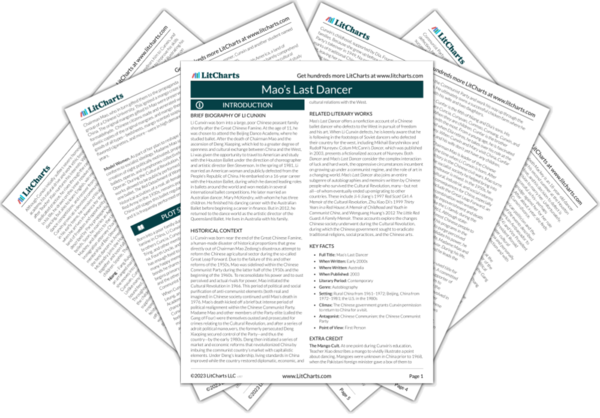Just like on his last flight out of China—or on his childhood train rides from the village to Beijing—Cunxin has mixed feelings. On the one hand, he’s sad to leave his family behind because they mean so much to him. Relatedly, he’s sorry to leave behind his brothers like Cuncia and Cunyuan who want very badly to escape the narrow confines of their lives. But on the other hand, he realizes that he can only live his own life. And working to take advantage of the opportunities that life has handed him honors the family he loves so much. When he was a child, he couldn’t have predicted the changes that would happen in his life—or in China more broadly. And so he looks forward to discovering the unseen possibilities he believe the future has to offer him—and anyone else willing to work hard and love the people around them to the best of their ability.


